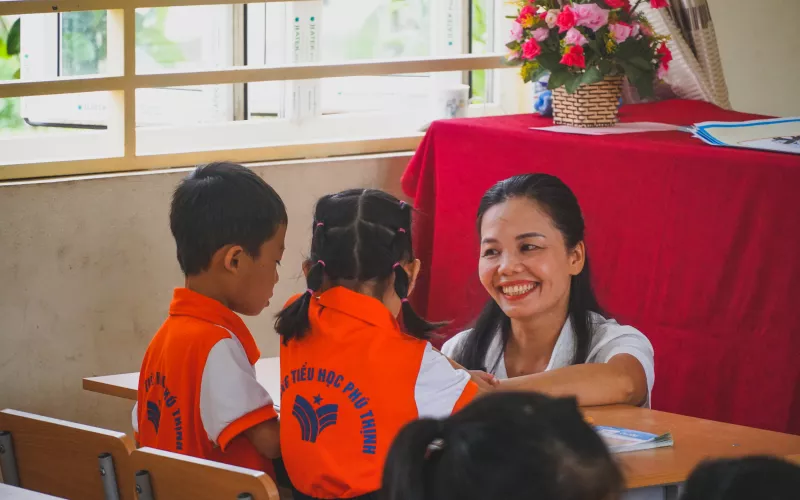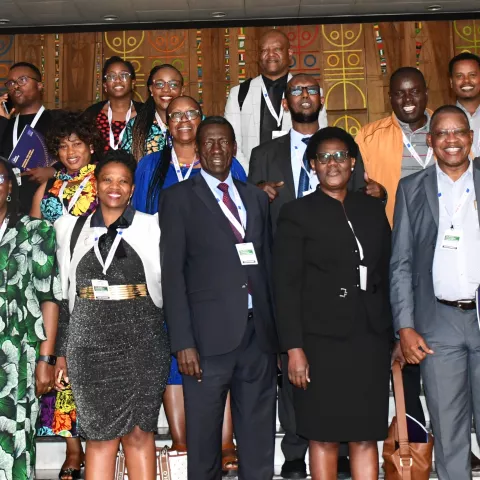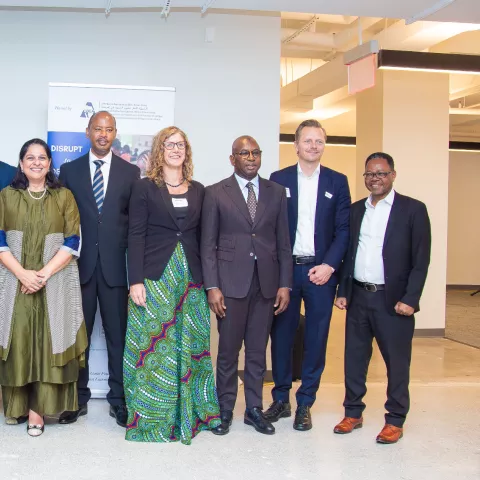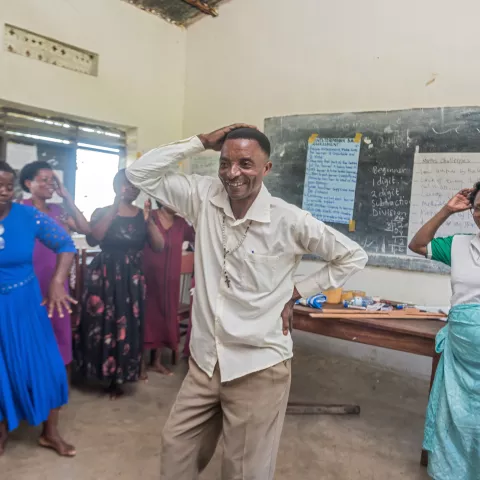
Provinces of Thai Nguyen, Hanoi, Quang Tri, Da Nang, Quang Ngai, Ho Chi Minh City, Lai Chau, Ha Giang, Binh Duong
Challenge
Vietnam is changing rapidly. To reach their future potential, primary learners need a breadth of skills, including cognitive, social, emotional, physical and creative skills. The school culture in present day Vietnam is highly academic and results-oriented. Classroom practice is therefore very teacher-centred and knowledge-focused.
To transform the knowledge-focused education system into an education system that equips learners with a breadth of skills, the Ministry of Education and Training (MoET) is rolling out a new, competency-based curriculum. Learning through play (LtP) pedagogies have great potential to contribute to achieving the objectives of the new curriculum.
To successfully integrate LtP in the classroom, there is a need to fundamentally shift school leaders’, teachers’ and caregivers’ deep-seated beliefs about learning as an essentially cognitive process separate from and valued over play towards an understanding of the role of LtP in fostering a breadth of skills.
Goals
School leaders and teachers in primary schools have the competences to systematically integrate LtP pedagogies into their school environment and classroom practice.
Project Partners
Approach
The iPLAY programme centres on integrating LtP pedagogies into the existing in-service teacher professional development (TPD) systems and in the trajectories for school-based continuous professional development (CPD) of primary education teachers and school leaders. School leaders and teachers enrol in the iPLAY trainings as part of their annual TPD trajectory.
The programme is built around three pillars:
- capacitating local education officers to support and monitor school-based CPD on integrating LtP;
- empowering school leaders to foster a playful school environment that encourages integrating LtP in classroom practices;
- shifting primary teachers’ classroom practices towards joyful, actively engaging and meaningful LtP pedagogies.
Each pillar contributes to the effective implementation of the new general education curriculum in primary education.
To further foster an enabling environment for LtP, VVOB will support schools to organise community outreach activities for caregivers in order to change prevailing social norms that prioritise cognitive skills development at the detriment of social, physical, emotional and creative skills development.
By the end of the programme
- MoET:
- has formulated a vision on LtP for Vietnam;
- has co-developed and endorsed LtP materials for national and school-based CPD;
- provides CPD opportunities on LtP as part of the in-service primary teacher and school leader CPD system;
- has prepared the uptake of LtP in the new pre-primary education curriculum and in the official MoET student assessment frameworks and tools.
- Province and district officials:
- coach and mentor school leaders and teachers to incorporate LtP-pedagogies in the classroom;
- monitor and report on school-based CPD activities on LtP.
- School leaders:
- have improved knowledge of LtP in their learning environments and how this links to holistic skills development;
- create a learner-friendly school environment that is conducive to play;
- monitor and report on school-based CPD activities;
- inform caregivers of the importance of LtP for holistic skills development and apply LtP-pedagogies in activities with caregivers.
- Teachers
- have improved knowledge of LtP in their learning environments and how this links to holistic skills development;
- facilitate LtP in their learning environments.
- Caregivers have improved knowledge and understanding of holistic skills and how LtP develops these skills.
To reach its goals, VVOB in Vietnam develops the capacity of its partners. VVOB uses capacity development trajectories that give partners maximal responsibility in the execution and management of their own change processes. This is done through technical assistance provided by the VVOB team in Vietnam, which includes both local and international educational and change management experts.


